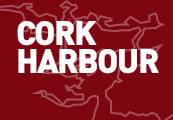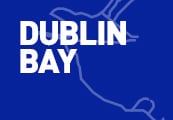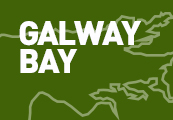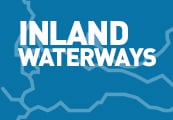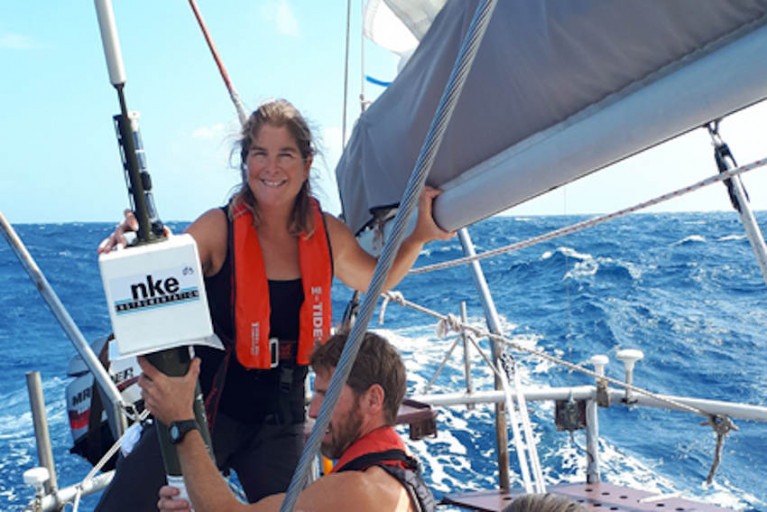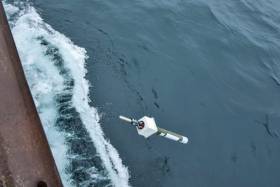Displaying items by tag: Argo float
Galway Family Deploys Argo Float In Atlantic Ocean
The Quinlan-Owens family from Galway gave the Marine Institute a helping hand recently when they deployed an Argo float in the Atlantic Ocean while sailing their yacht Danu.
Vera Quinlan, Peter Owens and their two children Lilian and Ruairi deployed the Argo float en route from Cape Verde to French Guiana as part of their 14-month sailing trip around the Atlantic from Galway to New York.
Vera is a hydrographer for INFOMAR, the national seabed mapping programme, which is jointly managed by the Marine Institute and Geological Survey Ireland.
Thanks to the Quinlan-Owens family from Galway for sharing this video of the deployment of a Marine Institute Argo Float in December.
— Marine Institute (@MarineInst) January 23, 2020
For more on this story please see - https://t.co/yWmgLbTLdD #marine #argofloat #ocean #data #research @EuroArgoERIC pic.twitter.com/5TXeTWZ9io
Argo floats are deployed across the world’s oceans to continuously monitor the ocean and provide essential data to help marine scientists understand oceanic conditions, interactions between the ocean and the atmosphere, as well as long-term climate trends.
The devices distribute real-time information on temperature and salinity up to a depth of 2,000 metres below the ocean's surface.
Measuring the temperature and salinity of the ocean is crucial in better understanding climate change and the role of our oceans on our climate.
Before departing on their sailing voyage in June last year, Lilian and Ruairi showed the Argo float to their classmates at Kilcolgan Educate Together National School. The pupils signed their names on the float, which is now in the Atlantic Ocean and collecting measurements on temperature and salinity.
Measuring the temperature and salinity of the ocean is crucial in better understanding climate change and the role of our oceans on our climate
This data is transmitted via satellite every 10 days for the three to four years of the float’s lifespan and its location can be tracked at digitalocean.ie.
Alan Berry, of ocean science and information services at the Marine Institute, says it usually deploys Argo floats on research surveys carried out in the North Atlantic.
“Vera’s sailing trip offered the opportunity for an Irish Argo float to be deployed much further south, near the equator. We thank Vera and her family for participating in the Argo programme, and to Lilian and Ruairi for sharing this experience with their classmates so they can also learn about the importance of monitoring our oceans.”
As part of the Marine Institute’s participation in the Euro-Argo ERIC programme, 20 Argo floats have been deployed by the Marine Institute in the North Atlantic over the last 10 years, with a sustained deployment of three Argo floats per year since 2015.
The international Argo Programme currently has a network of some 4,000 Argo floats taking measurements in the world’s oceans.
The story of Danu’s 2019-2020 Atlantic circuit will feature in W M Nixon’s up-coming Sailing on Saturday here
A German Argo float deployed off Greenland in 2014 travelled 3,500km across the Atlantic Ocean and was recovered off the coast of Co Cork in 2018.
The Marine Institute was able to trace the owner and help return the Argo float to the Federal, Maritime and Hydrographic Agency in Hamburg, Germany.
Argo floats are deployed across the world’s oceans and distribute real-time information on temperature and salinity from up to 2,000m below the ocean surface.
Argo float number 6902584 was deployed in 2014 from the RV Knorr between Greenland and Iceland, and provided regular measurements until March 2017. At this time the float was recorded in the Labrador Sea, off Newfoundland, Canada.
Data is transmitted via satellite every 10 days for the three-to-four years of an Argo float's lifespan. However, by July 2017, this float was drifting at the surface in the North Atlantic and only reporting its GPS location.
The Argo float was covered in marine growth; and clearing this debris revealed the float's unique identification number
Seven months later, in February 2018, the Marine Rescue Sub Centre (MRSC) in Valentia contacted the Marine Institute regarding an Argo float that had been recovered by a Union Hall lifeboat off the coast of West Cork.
Diarmuid Ó Conchubhair of the Marine Institute, manager of the Irish Argo programme and vice chair of the European-Argo Management Board, retrieved the Argo float from Co Cork.
And he thanked the Marine Rescue Sub Centre in Valentia for their efforts in recovering the float and keeping it in storage.
“The Argo float was covered in marine growth; and clearing this debris revealed the float's unique identification number,” he said.
“As a member of the European Argo Programme, the Marine Institute was able to contact national programme managers to trace the float to its owner, the Federal, Maritime and Hydrographic Agency in Hamburg.”
Earlier this year, the Marine Institute's RV Celtic Explorer transported the Argo float to Hamburg, where it is now a display and demonstration float at the Federal, Maritime and Hydrographic Agency.
Birgit Klein, manager of the German Argo Programme and chair of the European-Argo Management Board, expressed her thanks on behalf of the agency to the Marine Institute for collecting and returning the float.
She said: “The Argo float has recently been transformed into an exhibit — its metal hull has been replaced with a clear plastic cylinder to allow the public to view the float's internal mechanisms.
And Klein explained how this particular float came to malfunction.
“Analysis of the float data showed that the float experienced sub-zero water temperatures in the Labrador Sea. With such low surface temperatures, it was likely that sea ice was present and caused mechanical damage to the float.”
Such water temperatures were recorded by the Argo float in the Labrador Sea, off Newfoundland in Canada, during the winter seasons from December 2015 to May 2016 and again in December 2016 to April 2017.
There are currently 3,800 profiling floats in the world's oceans as part of the Argo Programme
Ó Conchubhair said: “It is not uncommon for research devices to travel from the Canadian coast to the west coast of Ireland. In early 2018, a research buoy was found on the shore at Connemara in Co Galway, and had drifted over 6,000km across the Beaufort Sea, Artic Ocean and Atlantic.
Argo floats are used collect measurements on temperature and salinity, what Ó Conchubhair says are two essential climate variables that help to describe the oceans’ physical and thermodynamic state.
“Through our involvement in the Euro-Argo Programme, the Marine Institute deploys three floats a year and works with international partners to observe and understand how our ocean is changing and also provide essential data for climate and oceanographic research,” he said.
There are currently 3,800 profiling floats in the world's oceans as part of the Argo Programme.
The Marine Institute’s participation in the programme allows Ireland to build national capacity in the ocean observation sphere and places Ireland at the centre of global efforts to model, project, mitigate and adapt to the potential impacts of climate change.
Click HERE for more information about Ireland’s involvement in the Argo programme, and track and view the data available from Irish Argo floats at digitalocean.ie


